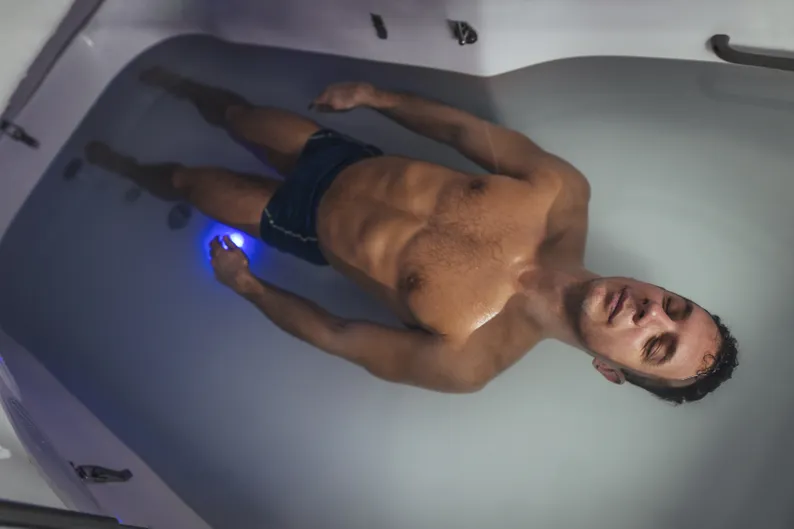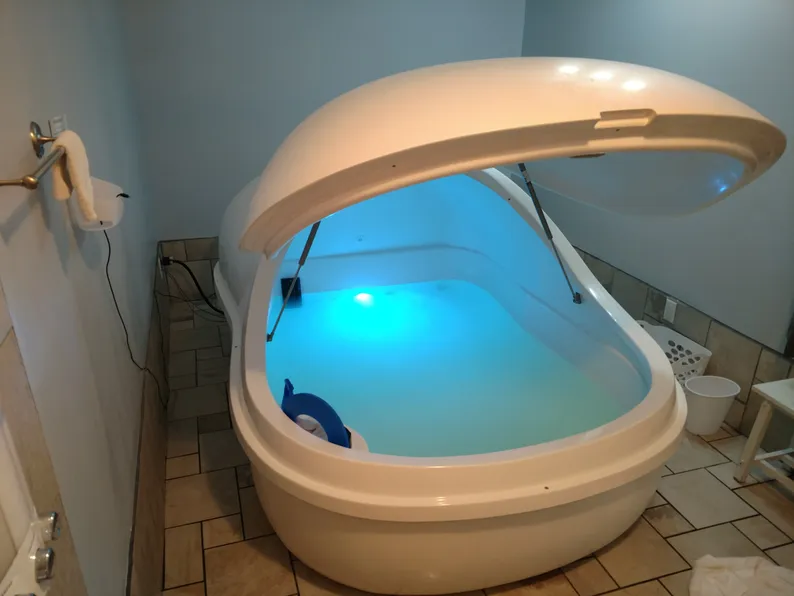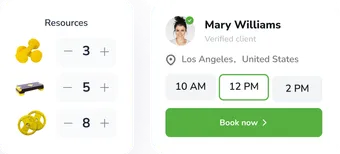Introduction
In the dynamic landscape of the beauty industry, finding a distinct niche can be a challenge. Yet, there's something uniquely captivating about the world of floating – a delightful fusion of spa-like relaxation and the therapeutic touch of medicine. It's a venture worth exploring, offering a fresh and appealing perspective.
Across the globe, floating has become a sensation in self-care. Enthusiasts are drawn to its ability to provide an escape from stress and the blissful sensation of weightlessness. Surprisingly, this haven of tranquility in Europe and the US is still a relatively uncharted territory. This presents a golden opportunity to introduce this captivating experience to your town or district, creating not just a business but a haven for beauty and serenity.
Floating has been gaining popularity across the United States and Europe in major cities and suburban areas. Although the niche is relatively new, the demand is significant, and competition is still developing.
Yes, floating is considered safe during pregnancy. Many facilities welcome pregnant women for floating sessions, emphasizing the potential benefits for both the mother and the baby. Generally, women can begin floating sessions from the early stages of pregnancy.
The cost of a single floating session can vary. On average, it starts at around €40, but prices may go up to €80 or more, depending on the location and the specific facility.

What is floating
Floating, a technique introduced by neuropsychologist John Lilly in 1954, involves immersing yourself in a calming saline solution. Lilly found that sensory deprivation, which means removing outside distractions, can positively affect the body.
Although Lilly's discovery took root in 1954, it wasn't until 1972 that the first float rooms emerged, making commercial floating available in beauty salons and spas.
By the 1970s, researchers like Peter Suedfeld and Roderick Borrie extended floating's benefits to medical purposes. Today, it's recognized for easing spasms and stress disorders, with endorsements from athletes like Phillips Idowu, who used a floatation chamber for recovery before a 2008 competition.
Top 5 benefits of floating:
Deep relaxation. Floatation therapy induces profound relaxation, soothing muscles, joints, and spinal discs.
Heart and blood pressure harmony. Floating helps in achieving a balanced heart rate and blood pressure.
Stress reduction. The sensory deprivation experienced during floating leads to a reduction in stress hormones, promoting mental well-being.
Pain relief and tissue regeneration. Accelerates the regeneration of body tissues, offering relief from various types of pain.
Mindful clarity. Floating fosters mental clarity, relaxing the mind and enhancing overall cognitive function.

Float tank startup business plan
How to open a float tank business:
Comprehensive business plan
Develop a thorough business plan considering regional nuances, cultural preferences, and local regulations for European and American markets. Outline your vision, financial projections, and operational strategy.
Legal compliance
Navigate the legal requirements for starting a business in the chosen market. Register your business entity, secure necessary licenses, and comply with federal, state (or country), and local regulations.
Location selection
Choose a strategic location that aligns with the demographics, accessibility, and cultural preferences of the target market. Ensure the chosen space complies with zoning laws and other regulations.
Lease negotiation
Negotiate a lease agreement for the selected location, ensuring it meets regulatory standards and provides space for floatation tanks, waiting areas, changing rooms, and bathrooms.
Equipment procurement
Invest in high-quality floatation tanks and equipment, following industry standards. Research reputable suppliers and select sensory deprivation equipment that meets specific market regulations.
Staffing considerations
Determine staffing needs based on the size and scope of your business. Adhere to local labor laws and hire skilled technicians and staff to provide an exceptional customer experience.
Marketing strategies
Tailor your marketing strategies to the local market, utilizing digital platforms, collaborations, and loyalty programs to build brand awareness and attract customers.
Customer management systems
Implement efficient customer management systems, including online booking and CRM platforms, to enhance customer satisfaction and streamline business operations in both markets.

How much do I need to start a floating business?
Starting a float tank business requires an initial investment ranging from €8,000 to €15,000 in Europe and €10,000 to €20,000 in the United States. The primary cost is typically the floating equipment.
Startup expenses
Business registration and online cash register:
€500 – €1,000. Cover the legalities and ensure proper financial tracking.
Premises renovation:
€5,000 – €10,000. Create a tranquil and welcoming environment for your clients.
Floating tank:
€7,000 – €12,000. Invest in high-quality sensory deprivation equipment.
Promotion:
€3,000 – €5,000. Launch targeted marketing campaigns to build awareness.
Furniture for the studio:
€3,000 – €5,000. Furnish the space for comfort and aesthetics.
Monthly operating costs
Rent:
€1,000 – €3,000. Consider location, size, and local market conditions.
Employee salaries:
€2,000 – €4,000. Ensure skilled staff for a quality customer experience.
Consumables:
€500 – €1,000. Purchase supplies in bulk to save costs.
Advertising:
€300 – €1,000. Utilize digital marketing and collaborations.
Tips to save money:
Online equipment purchase:
Buy equipment online to avoid markups and consultant fees.
Direct manufacturer purchase:
Consider getting floating tanks directly from manufacturers to avoid unnecessary markups.
Used equipment:
Explore buying used floating equipment from facilities upgrading.
Bulk consumable purchases:
Save costs by buying consumables in bulk.
Barter advertising with influencers:
Collaborate with local influencers for barter arrangements, exchanging sessions for reviews.

Booking software for floating business
In the world of floating businesses, adopting online appointment systems is crucial for success. It is often a game-changer as it offers the following benefits:
Real-time adaptability. Adjust schedules and resources on the fly to meet changing client needs.
Client-centric flexibility. Offer customers the convenience of scheduling appointments at their preferred times.
Dynamic resource management. Optimize resource allocation, minimize downtime, and maximize productivity.
Minimizing no-shows. Decrease too-late cancelations with timely reminders, ensuring smoother operations and optimizing revenue.
Data-driven insights. Gain valuable analytics for informed decisions and staying competitive.
EasyWeek's impact:
EasyWeek, a leader in online booking software, enhances efficiency and customer satisfaction:
Seamless integration. Align with the fluid nature of floating services and 3rd-party systems, including Google and Meta products, via a UI/UX user-friendly interface.
Free website creation. Get a stylish landing automatically and without any hidden expenses.
Customizable scheduling. Adapt scheduling processes based on unique brand demands.
Automated reminders. Reduce no-shows, optimizing resource usage. SMS, email, and push reminders will help notify every client about the upcoming appointment.
Comprehensive analytics. Leverage data-driven insights for refined strategies and enhanced customer experiences.
EasyWeek is a tailored solution that showcases the synergy between online appointments and the dynamic needs of floating businesses.

Conclusion
Starting a float tank business is an exciting journey filled with relaxation and the promise of well-being. As float therapy's popularity grows in Europe and America, there's a great opportunity for success.
The key steps, like crafting a solid business plan, handling legal matters, choosing a good location, and investing in quality equipment, lay the groundwork for a thriving business. The benefits of floating, from relieving stress to promoting tissue regeneration, make it an appealing choice for entrepreneurs and wellness enthusiasts.
While the initial costs may vary, careful planning and smart financial decisions can ensure a smooth launch and ongoing profitability. Utilizing online platforms for marketing, incorporating customer-friendly systems, and exploring ways to save money contribute to overall success. A successful float tank business combines innovation, mindfulness, and a commitment to offering a unique and therapeutic experience. With the increasing focus on holistic well-being, a well-run float tank business brings financial success and contributes positively to the health and happiness of the community it serves.
Try out EasyWeek software to fully benefit from the floating business idea.















